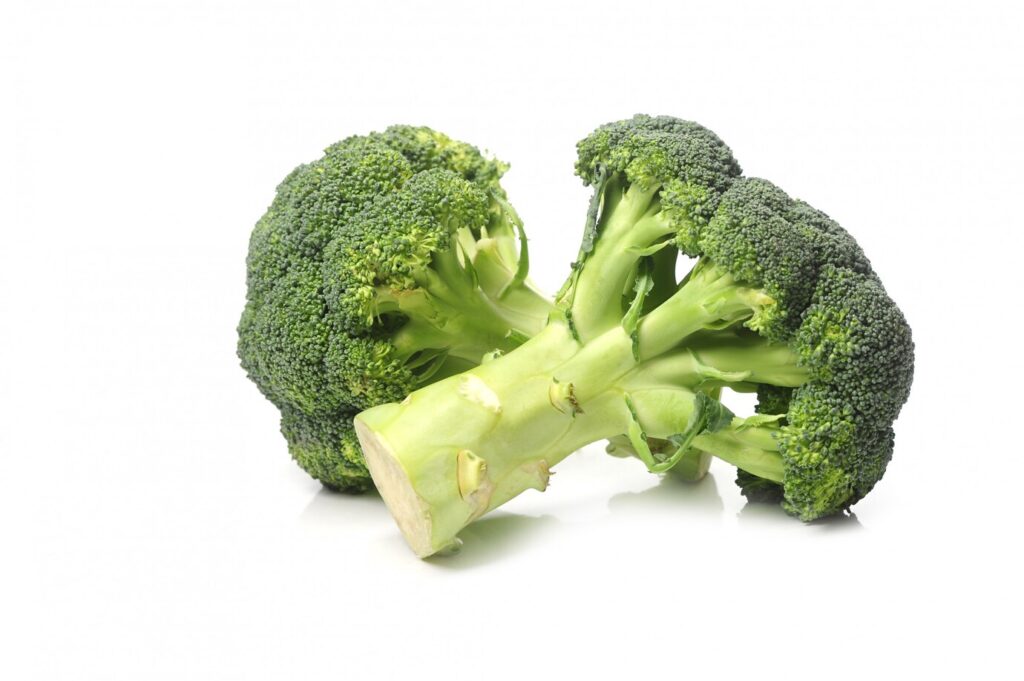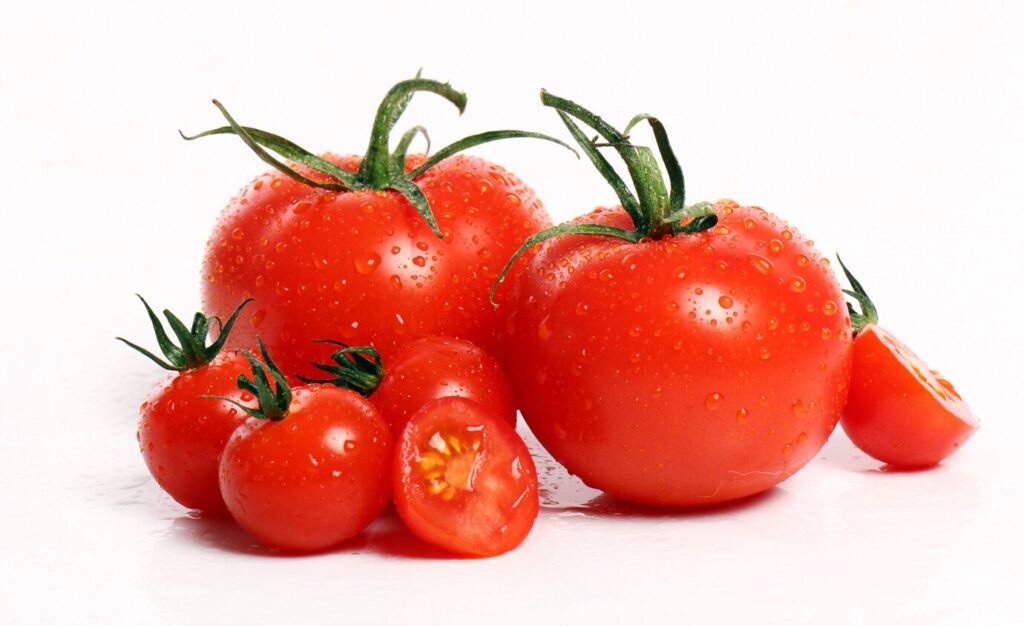Maintaining a heart-healthy diet is essential for preventing heart attacks and other cardiovascular diseases. Adding certain vegetables to your daily meals can greatly reduce the chances of developing heart-related problems. Discover three vegetables that can greatly contribute to maintaining a healthy heart: leafy greens, broccoli, and tomatoes.
1. Leafy Greens

Leafy green vegetables like spinach, kale, and Swiss chard are incredibly nutritious, providing a wealth of vitamins, minerals, and antioxidants. These vegetables contain a significant amount of Vitamin K, which is essential for maintaining healthy arteries and ensuring proper blood clotting. They also have significant amounts of nitrates, which have been proven to have positive effects on blood pressure, arterial stiffness, and the function of endothelial cells that line the blood vessels.
Health benefits
Vitamin K
Ensuring cardiovascular health requires the presence of Vitamin K. It plays a crucial role in preventing the hardening of arteries, a condition that can result in reduced flexibility and elevated blood pressure. Ensuring smooth blood flow and reducing the risk of blockages that can have serious consequences, Vitamin K plays a crucial role in promoting proper blood clotting.
Nitrates
Leafy greens contain nitrates that can be converted into a molecule called nitric oxide in the body. This molecule has the ability to relax blood vessels, leading to improved blood flow and a reduction in blood pressure. This process is beneficial for reducing the workload on the heart and minimizing the risk of heart disease. Research has indicated that incorporating nitrate-rich vegetables into your diet can have a positive impact on your cardiovascular well-being.
Antioxidants

Leafy greens are packed with antioxidants that help fight oxidative stress and reduce inflammation in the body. Oxidative stress and inflammation play significant roles in the progression of cardiovascular diseases. By neutralizing harmful free radicals, antioxidants help safeguard the health of the heart and blood vessels.
Incorporating a Healthy Diet
Adding leafy greens to your meals can be a straightforward and flexible choice. They can be incorporated into salads, smoothies, soups, and stir-fries. Make sure to incorporate a diverse selection of leafy greens into your meals to enhance their nutritional value.
2. Broccoli

Broccoli is a nutritious vegetable that provides numerous benefits for a healthy heart. It’s important to maintain healthy cholesterol levels, and this food is high in fiber, which can help with that. Furthermore, broccoli is packed with a variety of antioxidants, such as vitamin C and beta-carotene. Broccoli contains a powerful compound called sulforaphane, which is renowned for its impressive anti-inflammatory properties and its ability to safeguard against arterial damage.
Fiber
Ensuring a sufficient intake of dietary fiber is crucial for maintaining optimal cardiovascular health, as it aids in the reduction of LDL (bad) cholesterol levels in the bloodstream. Elevated levels of LDL cholesterol may contribute to the accumulation of plaque within the arteries, thereby heightening the likelihood of atherosclerosis and heart attacks. Fiber is also important for maintaining a healthy body weight, which is crucial for preventing heart disease.
Antioxidants

Broccoli is packed with antioxidants, such as Vitamin C, that can give your immune system a boost and aid in the repair of damaged tissues. Another antioxidant found in broccoli is beta-carotene, which is converted into Vitamin A in the body. It has a role in maintaining healthy skin and vision. These antioxidants provide valuable protection for the heart and blood vessels, shielding them from harmful oxidative damage.
Sulforaphane
Sulforaphane is a compound that has been thoroughly researched due to its impressive anti-inflammatory and cardioprotective properties. It has the ability to decrease inflammation in the arteries and hinder the development of arterial plaque. Sulforaphane also aids in the production of enzymes that enhance the protection of blood vessels and promote better cardiovascular function.
Incorporating a Healthy Diet
Incorporating broccoli into your meals can be a delightful and effortless endeavor. There are various ways to prepare broccoli as a side dish, incorporate it into casseroles and pasta dishes, or even blend it into soups and smoothies. For optimal nutrient retention, it is recommended to lightly cook broccoli or savor it in its raw form.
3. Tomatoes

Tomatoes are packed with lycopene, a potent antioxidant that has been associated with decreased levels of LDL cholesterol and a lower likelihood of developing heart disease. Tomatoes owe their vibrant red color to lycopene, a compound that offers a wide range of health advantages. Tomatoes are also rich in potassium, a vital mineral that helps support optimal blood pressure levels.
Advantages for Your Well-being
Lycopene
Tomatoes contain a powerful antioxidant called lycopene. It plays a crucial role in safeguarding the health of cells in the heart and blood vessels by preventing oxidative damage, which has been linked to the development of atherosclerosis and various cardiovascular conditions. Research has indicated that incorporating lycopene-rich foods into your diet may help reduce the likelihood of experiencing heart attacks and strokes.
Potassium
Ensuring a healthy heart requires maintaining a proper balance of essential nutrients. One such nutrient is potassium, which plays a crucial role in regulating blood pressure. By counteracting the effects of sodium in the body, potassium helps to keep blood pressure in check. Consuming a higher amount of potassium has been linked to a lower likelihood of developing hypertension and cardiovascular diseases. Tomatoes are a great option for boosting your potassium levels in a tasty and wholesome manner.
Other Antioxidants to Consider

Tomatoes are packed with a variety of antioxidants, including Vitamin C and beta-carotene, which offer numerous health benefits. These powerful compounds collaborate to combat inflammation, decrease oxidative stress, and shield the cardiovascular system from harm.
Incorporating a Healthy Diet
Tomatoes are incredibly versatile and can be included in a variety of dishes. There are various ways to savor them, whether it’s adding them to salads, incorporating them into sauces, or roasting them as a delightful accompaniment. Incorporating tomatoes into soups, stews, and sandwiches can elevate the taste and nutritional content of your dishes. To optimize the absorption of lycopene, it is recommended to combine tomatoes with nutritious fats such as olive oil.
Conclusions
Adding leafy greens, broccoli, and tomatoes to your diet can have a positive impact on your heart health and overall cardiovascular well-being. These vegetables are packed with vital nutrients, powerful antioxidants, and beneficial compounds that promote a healthy heart. They work by reducing inflammation, maintaining optimal blood pressure, and safeguarding against arterial damage.
By incorporating these vegetables into your daily meals, you can enhance your heart health and lower the chances of developing cardiovascular diseases. It’s important to keep in mind that maintaining a heart-healthy diet requires a good balance of nutrients, along with regular exercise and a healthy lifestyle. This combination is key to maximizing the benefits for your overall well-being. Adding a wide range of fruits, vegetables, whole grains, lean proteins, and healthy fats to your diet can have a positive impact on your cardiovascular health and overall well-being.
Tips for Eating a Heart-Healthy Diet
- Change Your Choices: Make it a point to incorporate a wide array of fruits and vegetables into your diet to ensure you get a comprehensive range of nutrients.
- Opt for whole grains instead of refined grains to boost your fiber and nutrient intake.
- Nourishing Fats: Embrace the goodness of nourishing fats found in avocados, nuts, seeds, and olive oil to promote a healthy heart.
- Reduce your intake of sodium by avoiding processed and packaged foods to maintain a healthy lifestyle. Enhance the taste of your meals with the delightful touch of herbs and spices.
- Stay Hydrated: Remember to drink plenty of water throughout the day to support your overall health and cardiovascular function.
- Incorporate regular physical activity into your routine to enhance heart health and promote better blood flow.
- Stay away from trans fats. It’s best to avoid foods that have trans fats since they can raise your chances of developing heart disease. Be sure to carefully read food labels in order to identify and steer clear of trans fats.
- Enjoy alcohol responsibly. If you choose to consume alcohol, it is recommended to do so in moderation. Excessive alcohol consumption may contribute to the development of high blood pressure and other heart-related problems.
By incorporating heart-healthy vegetables like leafy greens, broccoli, and tomatoes into your diet, you can take proactive steps towards maintaining a healthy heart and preventing cardiovascular diseases.